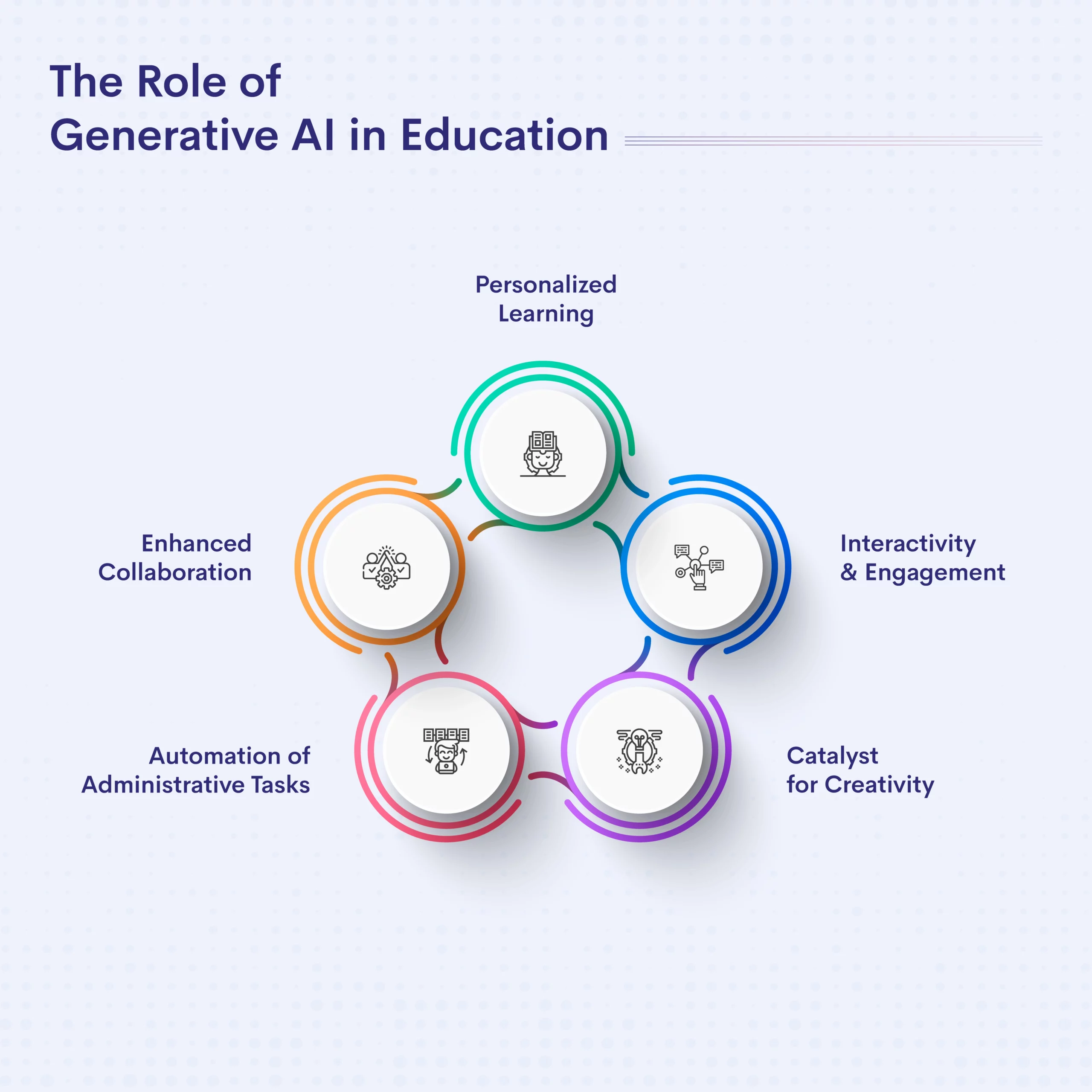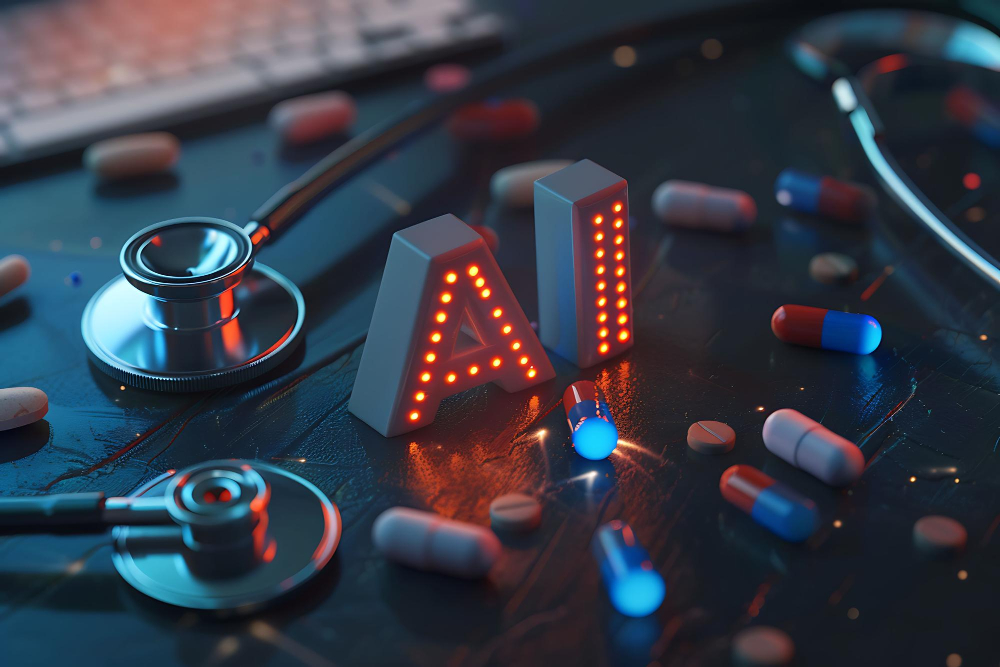- Blog
- April 29, 2024
Revolutionizing Learning and Creativity: The Impact of Generative AI in Education

- Blog
- April 29, 2024
Revolutionizing Learning and Creativity: The Impact of Generative AI in Education
Introduction
In today’s fast-evolving technological landscape, the fusion of artificial intelligence (AI) with education presents enormous potential. As we traverse the digital era, generative AI stands out as a beacon of innovation, poised to transform educational practices and foster creativity among learners. This article explores how generative AI can revolutionize education, offering customized learning experiences and promoting innovation in students.
Understanding Generative AI
Generative AI represents a groundbreaking leap in AI technology, focusing on the creation of new content across various mediums, including text, images, and music. Unlike its counterparts, which predominantly engage in prediction and classification tasks, generative AI endeavors to birth something novel and unique. Prime examples include OpenAI’s GPT models, renowned for their ability to generate text that mirrors human-like fluency, and sophisticated deep learning algorithms capable of crafting lifelike images with startling realism.
Current Challenges in Education
Traditional educational frameworks confront many challenges, struggling to accommodate students’ diverse needs and learning styles. The prevailing one-size-fits-all approach often throttles individual creativity and impedes the development of critical thinking skills, relegating education to a standardized conveyor belt. Furthermore, educators find themselves encumbered by a flood of administrative tasks, relegating teaching and mentorship to the sidelines in favor of paperwork.
The Role of Generative AI in Education
Generative AI emerges as an inspiration of hope, offering a remedy to the shortcomings of traditional education systems. By using the power of AI algorithms, educational platforms can exceed the limits of uniformity, delivering modified learning experiences tailored to each student’s unique profile of strengths, weaknesses, and interests. Adaptive learning platforms stand at the forefront of this revolution, dynamically adjusting content and pacing to optimize learning outcomes and engagement. Moreover, AI-generated educational materials inject a sense of interactivity and excitement into the learning process, captivating students and fostering a thirst for knowledge.

Generative AI extends its influence in education beyond simply personalizing learning, acting as a powerful engine for creativity. It equips educators with AI-generated content that ignites students’ curiosity and fosters innovation, encouraging them to push boundaries and innovate. By integrating AI into collaborative projects, students develop critical skills like teamwork and problem-solving within creative contexts. Moreover, AI’s ability to handle routine tasks such as grading and lesson planning frees educators to focus more on directly enriching student learning and emotional growth.
Ethical Considerations and Concerns
Among the excitement surrounding generative AI’s potential in education, it is imperative to tread carefully and address ethical considerations. Safeguarding student data privacy and security must be prioritized to prevent exploitation and misuse. Moreover, vigilant efforts are necessary to mitigate bias in AI-generated content, ensuring inclusivity and the representation of diverse perspectives. It’s essential to underscore that AI should complement rather than replace human educators, as they play an irreplaceable role in fostering critical thinking, empathy, and emotional intelligence in students.
Future Outlook
Generative AI will reshape the future outlook of the education sector. Many innovative approaches will be in action, ranging from virtual tutors and AI-powered textbooks to immersive learning experiences. Embracing generative AI as a catalyst for empowerment and innovation, education stands poised to unlock its full potential, preparing students to navigate and thrive in the complexities of the 21st century.
Conclusion
Generative AI stands as an inspiration of hope, poised to revolutionize learning and ignite creativity in education. By offering personalized learning experiences, fostering creativity, and liberating educators from administrative burdens, generative AI paves the way for a future where education is accessible, engaging, and empowering for all. However, realizing this vision necessitates a vigilant commitment to addressing ethical concerns and fostering collaboration between humans and machines. By harnessing the transformative power of AI, we can usher in a new era of education, where every learner can flourish and succeed.




